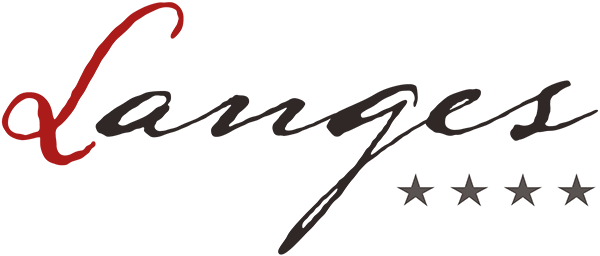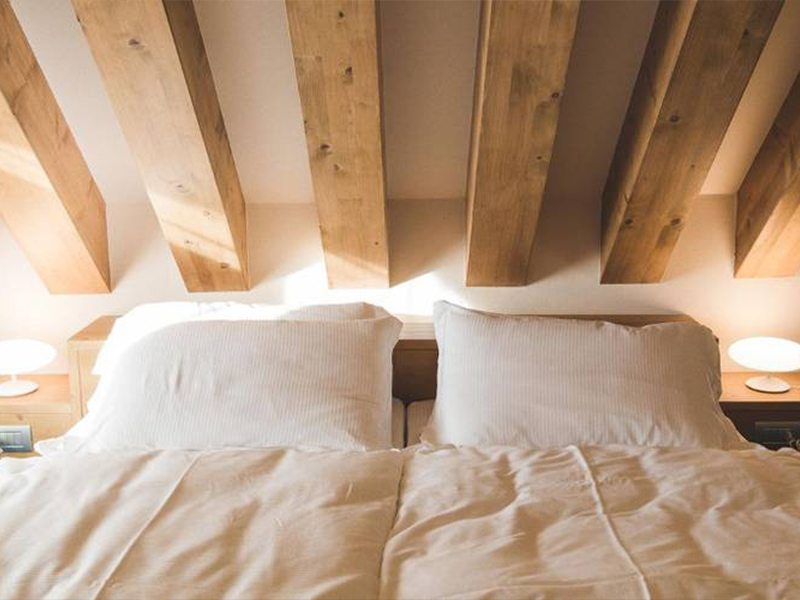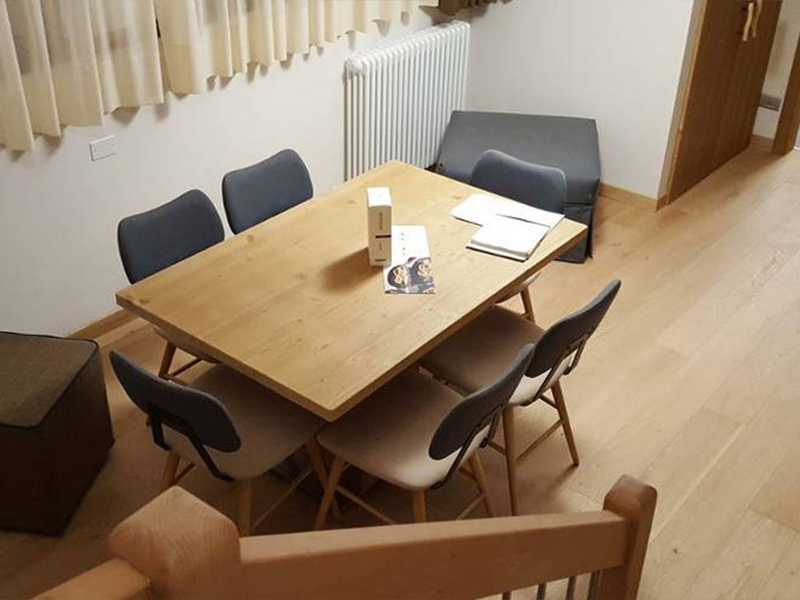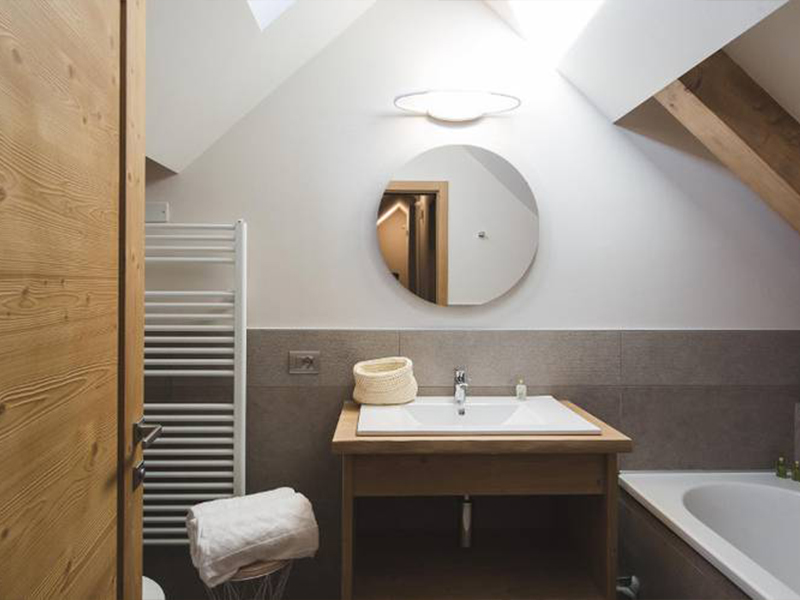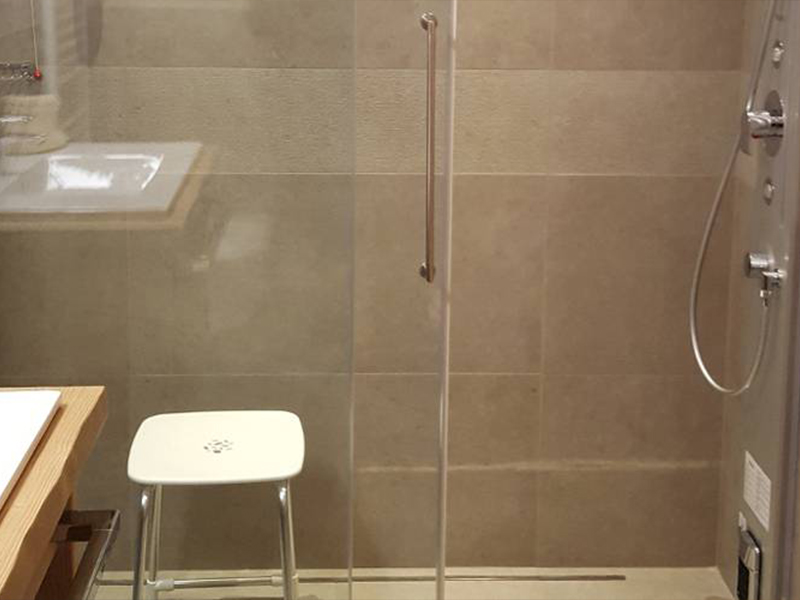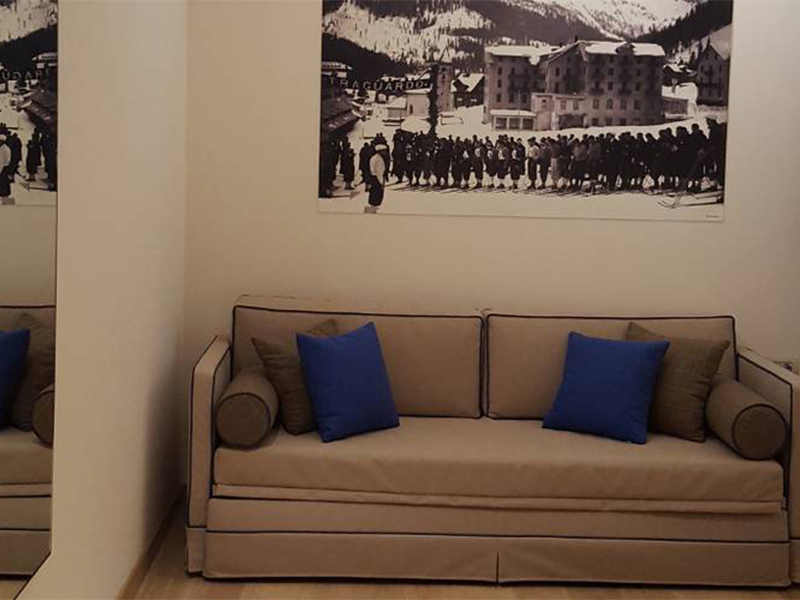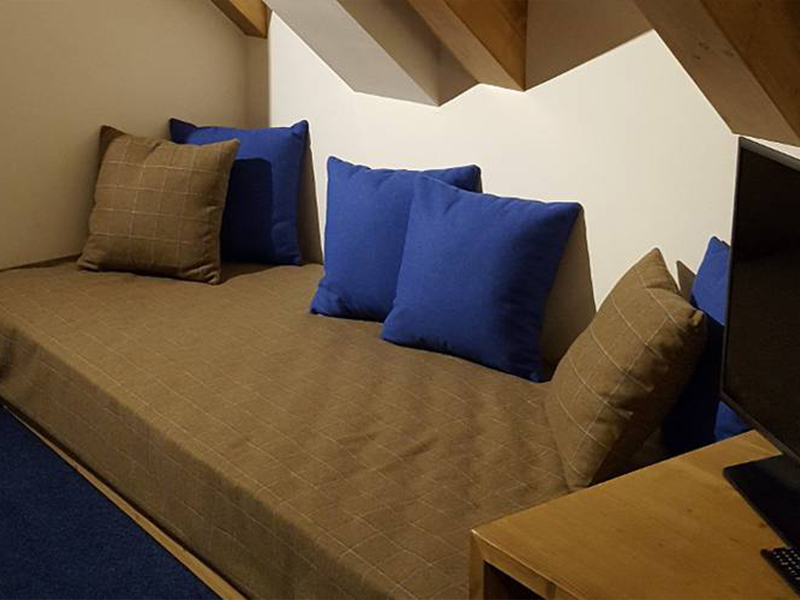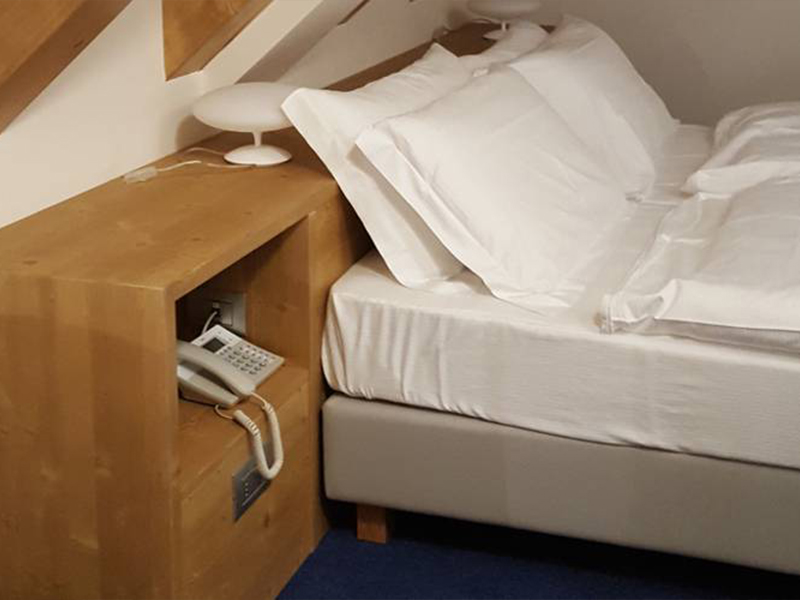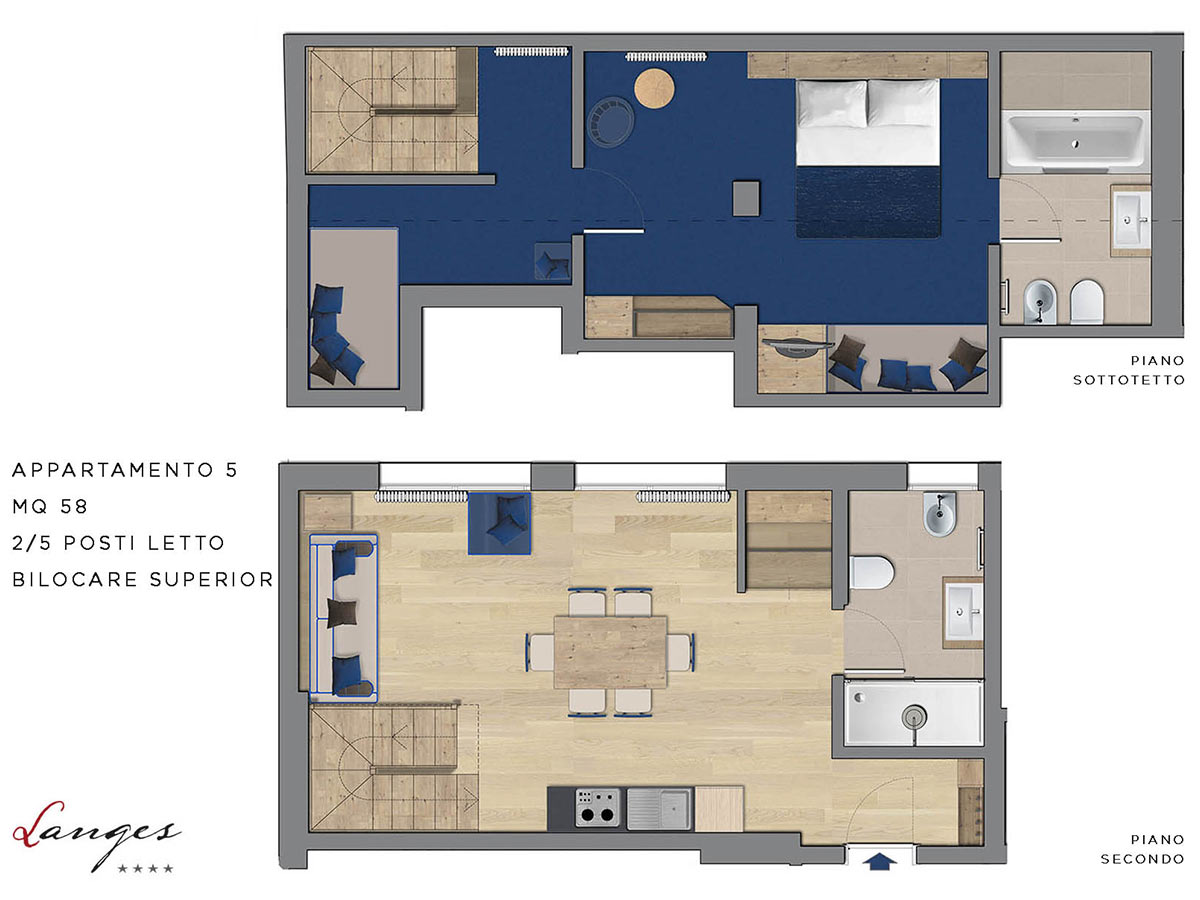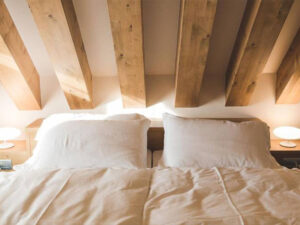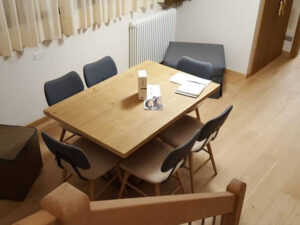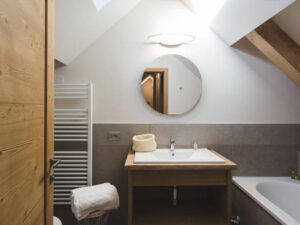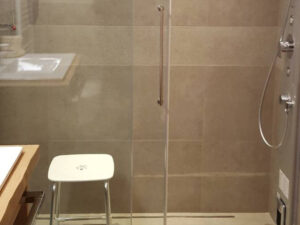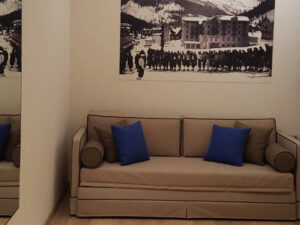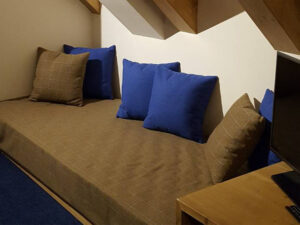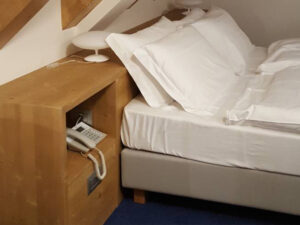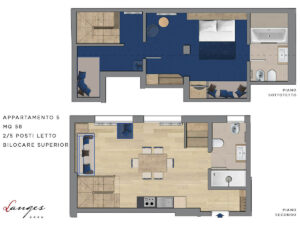Residence Langes, San Martino di Castrozza
Hermann Buhl
superior one-bedroom apartment


Explore the superior one-bedroom apartment dedicated to Hermann Buhl at Residence Langes, a structure that embodies elegance and functionality on two floors.
Designed to accommodate up to 6 people, the apartment offers a loft bedroom for four guests and a living room with a sofa bed, ideal for rejuvenating rest. The fully equipped kitchen and the two bathrooms, one with a bathtub and the other one with a shower and steam room, add comfort and convenience to your stay. You’ll also find a safety box, free Wi-Fi, smart TV and modern appliances that will make your stay even more enjoyable. The wood finishes create a cozy and authentic atmosphere, while the view on the Pale di San Martino will leave you breathless. With a king-size bed for maximum comfort and exposed beams conferring a charming touch, you’ll have an unforgettable experience in the heart of the Dolomites.
The apartment services

wifiFree WiFi
shield_lockSafe, laptop capacity
kitchen Refrigerator
alarmWake-Up Service
table_lampDesk
heat Hairdryer
cribCrib
tvSatellite TV
mode_coolIndividual Air Conditioning
phone_in_talkTelephone
health_and_beautyBathroom Amenities Kit
deckTerrace
room_serviceRoom Service
king_bedExtra Large Beds
stylerDaily Bed Making Service
landscapeView on the Pale di San Martino
editor_choice“Super Relax” treatment
petsPets Allowed (on request)
The character

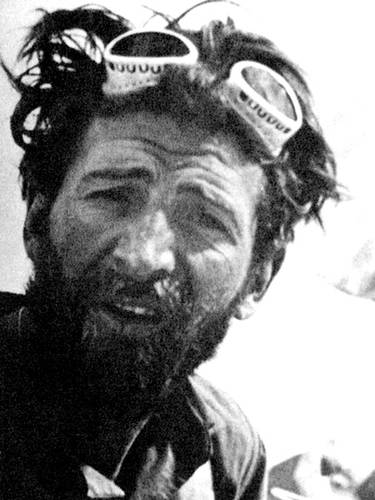
Hermann Buhl (1924 – 1957)
Austrian mountaineer and pioneer of extreme mountaineering, Buhl climbed the Pale di San Martino in the early 1950s and paved the west route of the magnificent Cima Canali, near the Pradidali refuge, along a rocky pillar now dedicated to him and considered among the most beautiful free-climbing routes in the Dolomites. First climber of two eight-thousanders and mountaineer with a strong temperament, Buhl paved numerous mainly solo alpine routes and also participated to Himalayan expeditions of considerable length and difficulty with only lighter equipment, without any oxygen or external aids, thus introducing the method now defined as “alpine style.”
